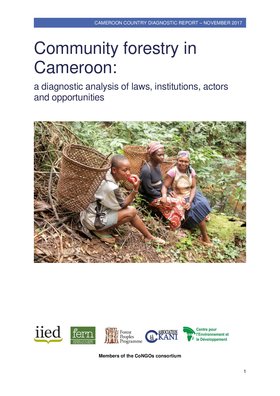Securing community tenure rights to land in Betem, Akpet, Idoma and Akampa in Cross River State, Nigeria
The study focuses on impacts of PZ Wilmar’s acquisition of nearly 30,000 hectares of land. Wilmar is a multinational company involved in land grabbing cases related to oil palm plantations in Cross River State, Nigeria. The study shows the extent of Wilmar’s infringement on communal land rights, examining cases of eviction and destruction of livelihoods. Findings show that the four communities studied suffered from increasing food prices, deficits of local staple foods, evictions and displacement of poor farmers.





